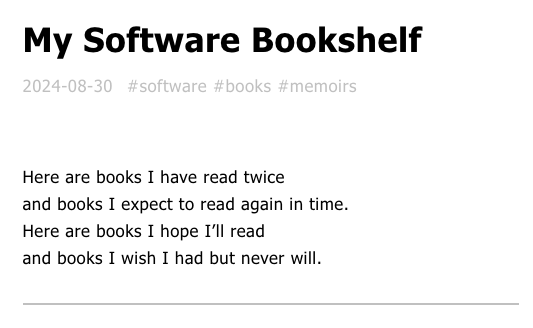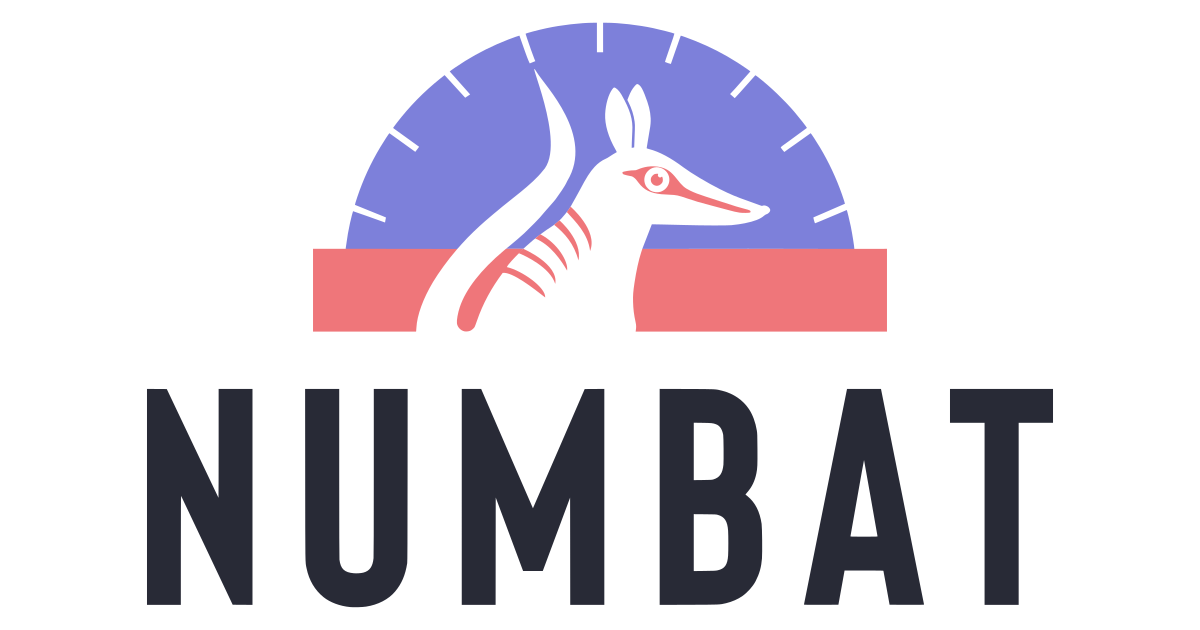bugsmith
- 20 Posts
- 47 Comments

 3·4 months ago
3·4 months agoNice. I’ve not seen any of your other videos yet, but I can say that for this one, I really loved that you just jumped straight in to the action and kept the video tight, without missing important details.
You know, I wish I could enjoy IRC - or chatrooms in general. But I just struggle with them. Forums and their ilk, I get. I check in on them and see what’s been posted since I last visited, and reply to anything that motivates me to do so. Perhaps I’ll even throw a post up myself once in a while.
But with IRC, Matrix, Discord, etc, I just feel like I only ever enter in the middle of an existing conversation. It’s fine on very small rooms where it’s almost analagous to a forum because there’s little enough conversation going on that it remains mostly asynchronous. But larger chatrooms are just a wall of flowing conversation that I struggle to keep up with, or find an entry point.
Anyway - to answer the actual question, I use something called “The Lounge” which I host on my VPS. I like it because it remains online even when I am not, so I can atleast view some of the history of any conversation I do stumble across when I go on IRC. I typically just use the web client that comes with it.
I really like Nushell. I would not run it as a daily driver currently, as it mostly doesn’t win me over from Fish, feature-wise, but I love having it available for anything CLI date pipeline work I need to do.
Love this. Always interesting to see novel ways of querying data in the terminal, and I agree that jq’s syntax is difficult to remember.
I actually prefer nu(shell) for this though. On the lobste.rs thread for this blog, a user shared this:
| get license.key -i | uniq --count | rename license This outputs the following: ╭───┬──────────────┬───────╮ │ # │ license │ count │ ├───┼──────────────┼───────┤ │ 0 │ bsd-3-clause │ 23 │ │ 1 │ apache-2.0 │ 5 │ │ 2 │ │ 2 │ ╰───┴──────────────┴───────╯
Thanks. I didn’t know about these advanced libraries, and had not heard of C++ modules either. Appreciate the explanation.
I don’t code in C++ (although I’m somewhat familiar with the syntax). My understanding is the header files should only contain prototypes / signatures, not actual implementations. But that doesn’t seem to be the case here. Have I misunderstood, or is that part of the joke?
I agree. The content is reasonably sound, but from a design and UX perspective, it’s awful.
A follow up post by the author, original shared and discussed here.
I like Konsole.
It comes with KDE, supports tabs, themes, and loads very fast.
I don’t really need more from a terminal than that. When I, rarely, need more advanced features like window splitting and session management I also use Zellij (previously I used tmux).
I disagree that it’s clickbait. Go does not have enums, that is undeniable. But we often encounter problems in software development where enums are an effective solution - arguably the right solution a lot of the time. Even if enums are not a language feature of Go, many of us are (rightly or wrongly) doing programming cartwheels to implement them ourselves. So I think an article discussing how one can roll enums or at least enum like behaviour in the language is relevant, and the awkwardness of that experience is captured in the blog’s title.

 2·9 months ago
2·9 months agoYes, I don’t know how I forgot to mention that Iceshrimp and Sharkey both have Mastodon compatible APIs - so all the same apps work (mostly).

 8·9 months ago
8·9 months agoBased on your requirements, I would suggest looking at one of the Firefish / CalcKey forks. They are ideal for single user or small instances and they support s3 compatible object storage out of the box.
I would recommend looking at Sharkey or Iceshrimp. Both are under very active development and have very responsive developers if you need support.
If you would like to check out an example, Ruud (of mastodon.world and lemmy.world) set up an instance of Sharkey at (you guessed it) sharkey.world.
Honestly, for any large scale project in Python, Pydantic makes it bearable. We use Python heavily at work (and I’d argue we shouldn’t be for the projects we’re working on…), and Pydantic is the one library we’re using that I wouldn’t be without. Precisely because it allows us to inject some of these static typing concepts and keeps us honest, and our code understandable.
Yes! The concepts are intertwined. I think the key take away, for me, is to lean heavily into your type system and allow that to do some of the heavy lifting. Accept that something like a
usernameis not a string, but a subtype of a string (this has to be true if any validation is required, otherwise you’d just accept any valid string).
It’s one of my favourites. Something I revisit every couple of years.

 1·9 months ago
1·9 months agoThat one has been on my list for a while. Are you finding yourself able to easily apply what is taught to your day-to-day?

 3·9 months ago
3·9 months agoDifferent strokes for different folks, I guess. I enjoyed Heroes for what it was.
I agree that Sonic Battle was one of, if not the best entries for character building. And SB is, in fact, my all-time favourite Sonic game. Breaks me that I may never see a sequel / reboot, and get to relive Emerl’s story.

 3·9 months ago
3·9 months agoI’d honestly be happier with no guns. Not sure if that was their greatest move, in their effort to make him ‘edgier’. He was perfect in SA2 and Sonic Heroes.

 4·9 months ago
4·9 months agoI am very excited for this. One part of my childhood that I’ve never been able to let go of is my total fanboy-ism of Shadow.
















Totally agree. Like most “rules”, it just needs treating with nuance and context.